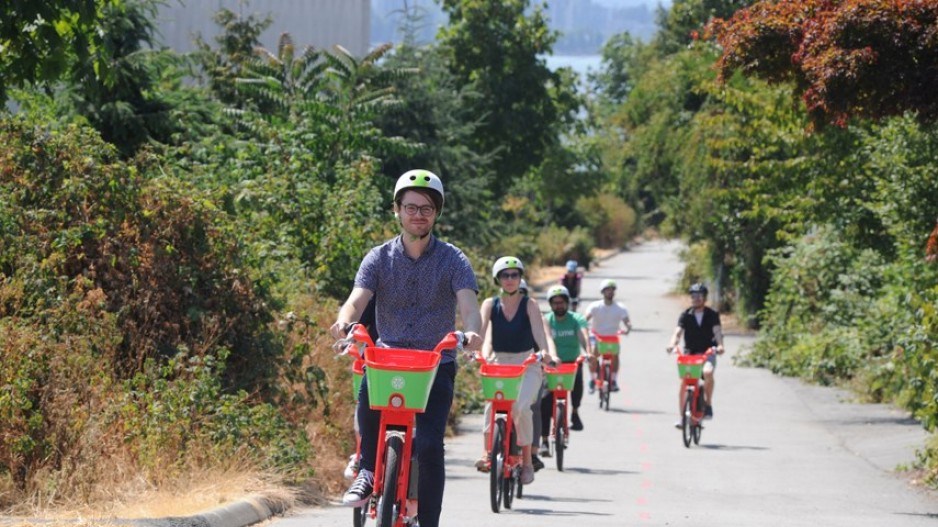The City of North Vancouver is just steps away from approving a signature piece of transportation policy – steps being a key term.
The city’s new mobility strategy, which seeks to improve transportation options and get people using their vehicles for fewer trips, is now out for its final round of consultations.
A draft version of the 72-page strategy went before council in December. It emphasizes active transportation – walking, cycling, or using other more sustainable non-auto options.
Currently, about 70 per cent of the trips made by city residents are in automobiles, but that has been shifting – down three per cent over the last decade, while the city’s population has been growing, according to the report.
When finished, the strategy will be a high-level plan intended to guide council’s decisions for maintaining and improving the city’s transportation network over the next decade.
Some of the 120-plus potential actions noted in the plan include:
- completing sidewalk and mobility lane networks that work for people of all ages and abilities, and adding amenities like benches, secure bicycle parking, weather protection, and washrooms to make them more enticing;
- introducing more bus-only lanes and working with TransLink to ensure all city residents and businesses are within a short walk of frequent transit service;
- encouraging more car-share services and carpooling;
- supporting schools in getting kids to walk or roll to class (including new rules for pick-up and drop-off for parents driving their kids to school), and
- making streets safer for vulnerable road users where conflicts are most likely to occur through better design and infrastructure.
The plan also contemplates reducing the speed limit to 30 kilometres per hour on local streets and stepping up enforcement, as well as introducing more metered parking on city streets. The widespread adoption of autonomous or self-driving cars is not anticipated until after the mobility strategy’s “horizon date” of 2032.
In a release, Mayor Linda Buchanan explained council’s rationale for the actions.
“Moving efficiently through the community is a priority we all share,” she said. “For too long, people haven’t been provided with adequate transportation choices, which is particularly true for people with mobility or accessibility issues. That’s why, with the input of residents, we’re creating a mobility strategy that will make our streets work for everyone – regardless of how you get around.”
The city has launched a survey for members of the public to review and give feedback on the ideas in the plan. It can be found at letstalk.cnv.org/mobility.
Residents have until Feb. 6 to take the survey, the results of which will be summarized for council before the draft strategy comes for a final vote.




